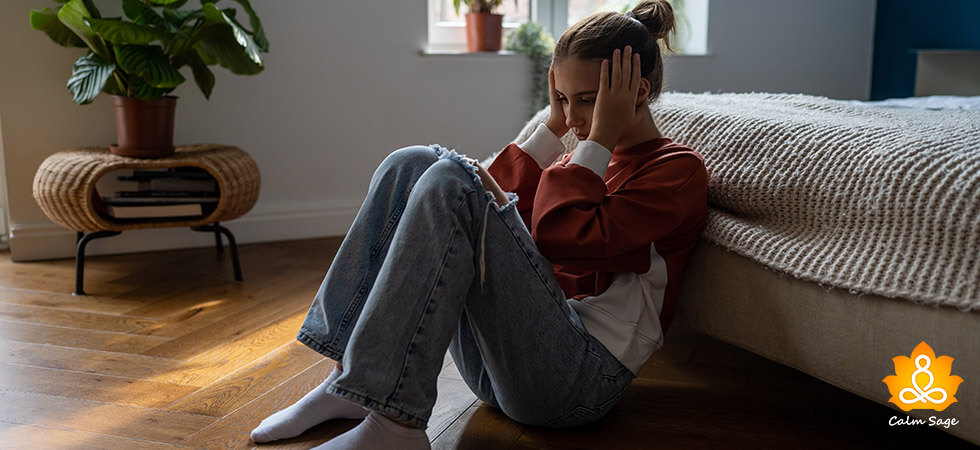12 Practical Tips to Help Someone With Agoraphobia

Living with agoraphobia can be a challenge in itself, where even taking one step outside your door feels like scaling Mount Everest. Running simple errands like grocery shopping or catching a bus could trigger a cascade of panic – racing heart, shortness of breath, and a desperate urge to flee.
This is the reality of those living with agoraphobia, an anxiety disorder characterized by an intense fear of social situations or situations that might cause panic.
While the specifics of this phobia can vary, agoraphobia can significantly restrict your daily life, and isolate you from your loved ones and activities you once enjoyed.
But there is hope! With understanding and support, people living with agoraphobia can reclaim their lives. Today, I’ve brought to you some practical tips for supporting someone you care about who might be struggling with agoraphobia.
An Overview of Agoraphobia
Agoraphobia isn’t just a fear of open spaces, though it’s a common misconception. It’s a complex anxiety disorder coupled with the fear of losing control. People living with this phobia often dread situations where escape might be difficult, like crowded places, shopping malls, or even leaving their homes for running errands.
This fear is rooted deeply in one’s experiences of panic attacks, a general state of anxiety, or a combination of these factors.
The symptoms of agoraphobia can be debilitating. Along with the fear of specific situations, physical symptoms such as tightness in the chest, dizziness, and rapid heart rate can occur when you face a trigger. This can cause a cycle of avoidance – the fear of experiencing these symptoms fuels the avoidance of situations that might trigger them.
With time, this avoidance behavior can shrink a person’s world, leading to social isolation and a poor quality of life.
How to Help Someone With Agoraphobia?
Supporting and helping someone with agoraphobia needs patience, empathy, and a commitment to understanding their experiences. Here are some tips to guide you on how to help someone with agoraphobia;
1. Learn About the Condition
As much as you can, learn the basics of the anxiety disorder. Knowing what triggers agoraphobia and what it looks like can help you understand your loved one’s challenges and respond to them with compassion.
2. Listen to Them
Create a safe space for your loved one to openly express their fears and anxieties. Do not judge them or say anything criticizing or invalidating. Make sure your support is free of judgment and try to listen to their challenges and situations without offering unsolicited advice or trying to fix things for them.
3. Validate Their Experiences
Avoid dismissing their condition and fears by minimizing the situation or saying things like “There’s nothing to be afraid of”. Acknowledge the challenges they’re facing and the severity of their situation from their point of view. Offer your genuine support and most of all, make them feel heard and validated.
4. Encourage Professional Help
Therapy, particularly cognitive-behavioral therapy (CBT), is one of the most effective ways to manage agoraphobia. You can help someone with agoraphobia by encouraging them to find help or finding a qualified therapist who specializes in treating anxiety disorders for them. Sometimes, people can be too scared or ashamed to ask for help. The best thing you can do here is to show your support.
5. Respect Their Boundaries
You can’t push someone with agoraphobia beyond their limits. Doing so will only worsen their anxiety, not help them manage it. Respect their boundaries and limits while gently encouraging them to face their fears in small and manageable ways. Facing your fears all at once can be too overwhelming, so be gentle.
6. Celebrate Small Wins
Acknowledge and celebrate every step you or your loved one take forward to recovery, no matter how small. This kind of positive reinforcement will motivate your loved one to continue their therapy and move toward progress and healing.
7. Be Patient
It might take time to recover from agoraphobia, so be patient with yourself and your loved ones. Progress is always slow and since it’s an anxiety disorder, the path to recovery might not seem as smooth. Avoid getting discouraged and remain patient, as much as you can.
8. Help Them With Relaxation Techniques
Another way you can help someone with agoraphobia is to guide them through relaxation techniques. Relaxation techniques like deep breathing exercises, mindfulness meditation, and progressive muscle relaxation (PMR) can help manage anxiety symptoms. Help and encourage your loved ones to practice these techniques to manage their symptoms of agoraphobia.
9. Joining Support Groups
Another way you can help someone overcome agoraphobia is to encourage them to join support groups. You can also join support groups for family members and friends of people living with agoraphobia. Connecting with others who understand the challenges of the condition can be helpful.
10. Offer Practical Help
For some people, simply leaving their homes can be a monumental task. In such cases, you can offer some practical help to them to ease their burdens. For example, you can offer to run errands for them, do their chores, or help them with transportation if you can. Little things like this can make life easier for them.
11. Talk to Them
While it might sound overrated, communication is key. Talk about their fears and triggers with them and adjust your approach to situations accordingly. It always helps to know what you can avoid doing or saying to prevent worsening their condition.
12. Most of All, Take Care of Yourself
In taking care of our loved ones, we often neglect self-care. Taking care of yourself is important, especially when supporting someone with agoraphobia. Set boundaries for yourself, seek support, and take care of your well-being. Your support can make a difference, indeed, but it won’t work if it comes at the cost of your health and well-being.
Related: The 333 Rule For Anxiety: What Is It And How It Helps
Some Examples of What to Say to Someone With Agoraphobia
- “I understand this must be difficult for you. Anxiety can be overwhelming.”
- “It’s OK to feel scared. I’m here to listen to you if you want to talk about it.”
- “I know you might not feel comfortable going out right now, but I’m here whenever you’re ready.”
- “Would you like some company when you’re going to the store?”
- “We can take things slow. Maybe just start by sitting on the porch for a few minutes.”
- “You are so brave; facing your fears like this!”
Wrap Up…
Agoraphobia can be a debilitating condition, but it doesn’t always have to win. With the right knowledge about the anxiety disorder, support, and professional help, you and your loved one with agoraphobia can reclaim control. You can offer a helping hand, not a push, to empower someone living with agoraphobia and help them break free from the fear and step into a world of possibilities.
I hope this article helped you understand how to help someone with agoraphobia. Let us know your thoughts and tips you’d like to share with us in the comments below.
Take Care!
Next Read:




















